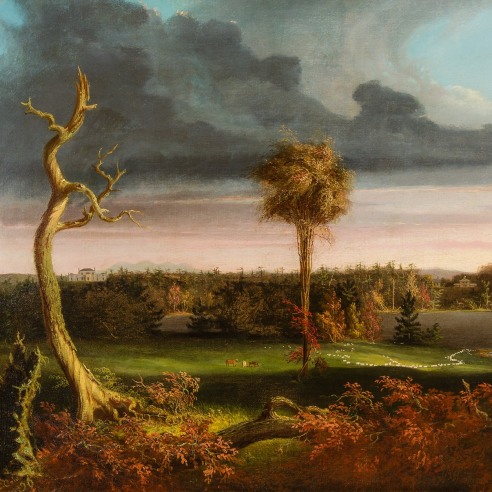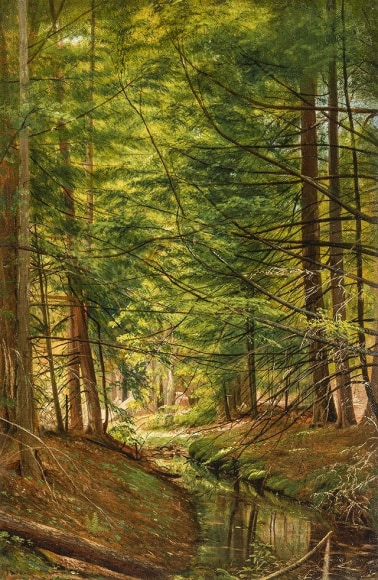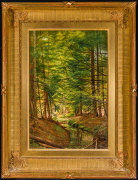
JERVIS MCENTEE (1828–1891)
River in the Forest, about 1855
Oil on canvas, 15 1/4 x 10 in.
EX COLL.: private collection, Rye, New York: to [Hirschl & Adler Galleries, New York, 1994]; to private collection until the present
River in the Forest may properly be understood as an illustration of the artistic philosophy which McEntee expressed to George Sheldon in 1879:
From my home in the Catskills I can look down a vista of forty miles, a magnificent and commanding sight. But I have never painted it.... What I do like to paint is my impression of a simple scene in Nature. That which has been suggested is more interesting than that which has been copied. The copying that an artist does should appear in a study rather than in a picture proper.... All art is based upon a knowledge of Nature and a sympathy for her; but in order to represent her it is not necessary to make a thing exactly like a thing. Imitation is not what we want, but suggestion.
River in the Forest reflects not only Asher Durand’s preferred theme of the sun-dappled woodland interior, but also an awareness of the preaching of John Ruskin, the English critic whose “truth to Nature” aesthetic had such a profound influence on midcentury American art. Though River in the Forest cannot be precisely dated, there are strong indications for dating to 1855. The painting is similar enough in size, palette, and subject matter to another work by McEntee, Lanes, to suggest that the two might have been conceived as pendants, or that they at least were painted in close time proximity with one another. Lanes is signed and dated 1855. A stencil on the back of the canvas of River in the Forest indicated that the canvas came from Williams, Stevens & Williams, a gallery and art supply shop located at 353 Broadway in New York from 1851 through 1859.




